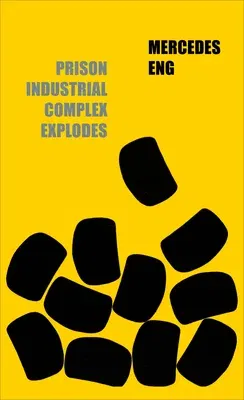Combining text from government questionnaires and reports, lyric poetry,
and photography, Prison Industrial Complex Explodes examines the
possibility of a privatized prison system in Canada leading up to then
Prime Minister Harper's Conservative government passing the
Anti-Terrorism Act, also known as Bill C-51. This legislation
criminalizes Indigenous peoples' attempts to protect their traditional
and unceded territories from ecological destruction by classifying their
actions as acts of terrorism, at the same time that it criminalizes
refugees, who as victims of colonization and globalization, attempt to
flee genocide and poverty yet are targeted as suspected terrorists.
Simultaneously, the incarceration of Indigenous people, refugees, and
people of colour is rapidly increasing and corporations eagerly court
the government for private-public partnerships to fund the building of
new prisons and detention centres.
Eng's father was an addict who supported his habit by breaking the law.
As a result, she spent her formative years acquiring intimate knowledge
of the Canadian prison system through visitation rights. The impetus for
Prison Industrial Complex Explodes was the discovery of a cache of her
father's prison correspondence: letters from the federal government
stating their intention to deport him because of his criminal record;
letters from prison justice advocate Michael Jackson advising her father
on deportation; letters from the RCMP regarding the theft of her
father's property, a gold necklace, while in transport to prison;
letters from family members and friends; letters from Eng and her
brother. The cold formality of the government letters in accidental
juxtaposition with the emotion of the personal letters struck a creative
spark that led to the writing of poems in this collection.

